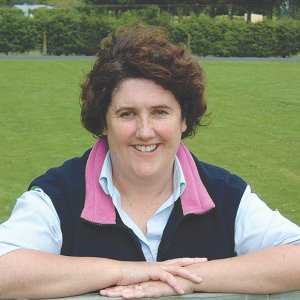Speight led a major dairy project in Pakistan – in fact she was the highest woman in agriculture there at the time – but the men still spoke to her through any male she happened to be with — assuming she was the secretary.
But Speight was more interested in getting the job done than worrying about how the locals reacted to a woman in charge.
“And there was a real respect for New Zealand and the way we approach farming – working on a shoestring and using know how,” she says. “They had been trying to use European technologies which were high input, high cost and not suited to their tropical environment or low milk price.”
Now Speight is helping dairy women around the country step up for leadership and governance positions from school boards to business directorships.
An ag science graduate, Speight became a consulting officer with LIC in a role which is now part of DairyNZ and married a farmer and had children. The Pakistan experience came in 2006-08 when she worked with other kiwis to lead a Pakistani national dairy extension project to grow the dairy industry there, travelling throughout the country including the volatile tribal areas.
She says you cannot imagine the satisfaction of seeing a family living in a tiny space with their one buffalo improve production enough to be able to educate their children.
She moved on to Chile as a production manager for 35 farms operated by a New Zealand company then returned to New Zealand to be operations manager for eight of the Crafar farms in receivership. She moved on in 2011 thinking the sale was done and dusted.
Becoming DWN’s first full-time chief executive in June 2011, she has overseen a period of tremendous growth, with membership up 700 to 3100 in the last year.
The network is not a “sexist” organisation – in fact men can and do attend events. But it was recognised in the late 1990s that while most dairy farms were run by couples, with women closely involved, most dairy industry events focused on mens’ main areas of interest – cows, grass and industry issues. And some were held at night when someone had to stay home to look after children, and that was usually the women.
“DWN researched the learning styles of women in order to offer the environment best suited to dairy women. The events are interactive and allow for plenty of discussion and where possible we try to hold DWN events from 10am to 2pm and not during the school holidays.
“It’s an opportunity to meet other women in a supportive environment to talk about the issues they are interested in or most involved in. Often that is calf rearing, young stock, finance, business and they are often more involved in compliance issues with HR being a popular topic in recent times.
“The women’s role on dairy farms is being acknowledged far more than it was. And with businesses getting larger, the requirement for women to understand things like environmental compliance is becoming more complex.
“Some issues are exactly the same as the men talk about and men are welcome to come to any of our events. In fact more are coming along, for instance to hear particular speakers.”
Women are now heavily involved in the business side of dairy farming and often decide where the money is spent. Speight says there’s more recognition of the valuable resource of these business skills to the wider industry. But women need training and encouragement to move into leadership and governance roles.
“There’s a lot of discussion in the media about the role women are playing in leadership and governance across all New Zealand. We are providing opportunities to dairy women to grow their knowledge and skills and support them as they move towards more leadership roles. These roles may be within the farm business, their community or the industry.”
Creating Dairy Women of the Year was part of that encouragement and “celebrating successes”. The inaugural winner, Barbara Kuriger, is “a great role model”, says Speight. Kuriger is participating in the Global Women Forum Breakthough Leaders programme, aimed at preparing women for governance roles.
But Speight says women need to know they are in leadership roles through their own merits not through quota systems.
















